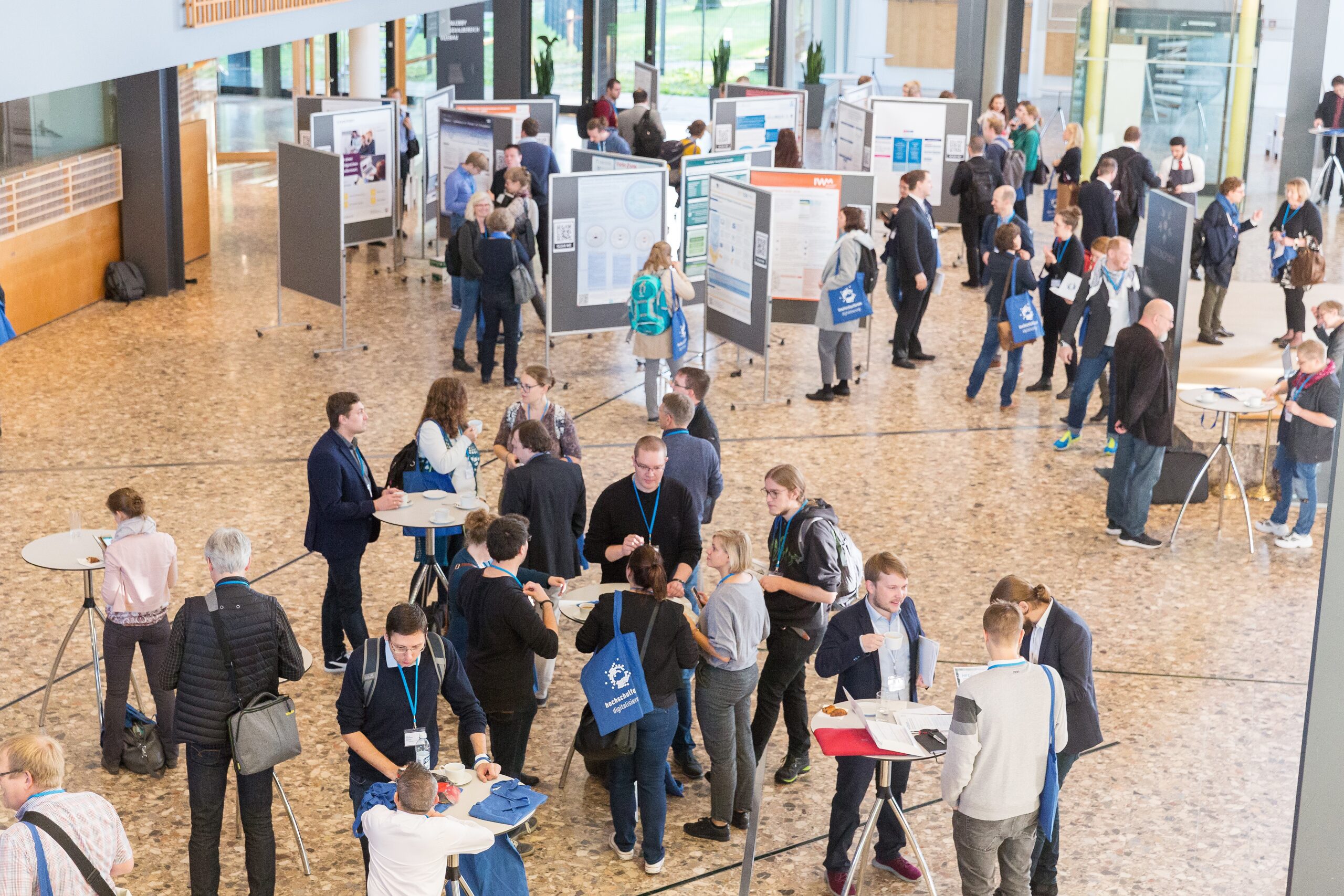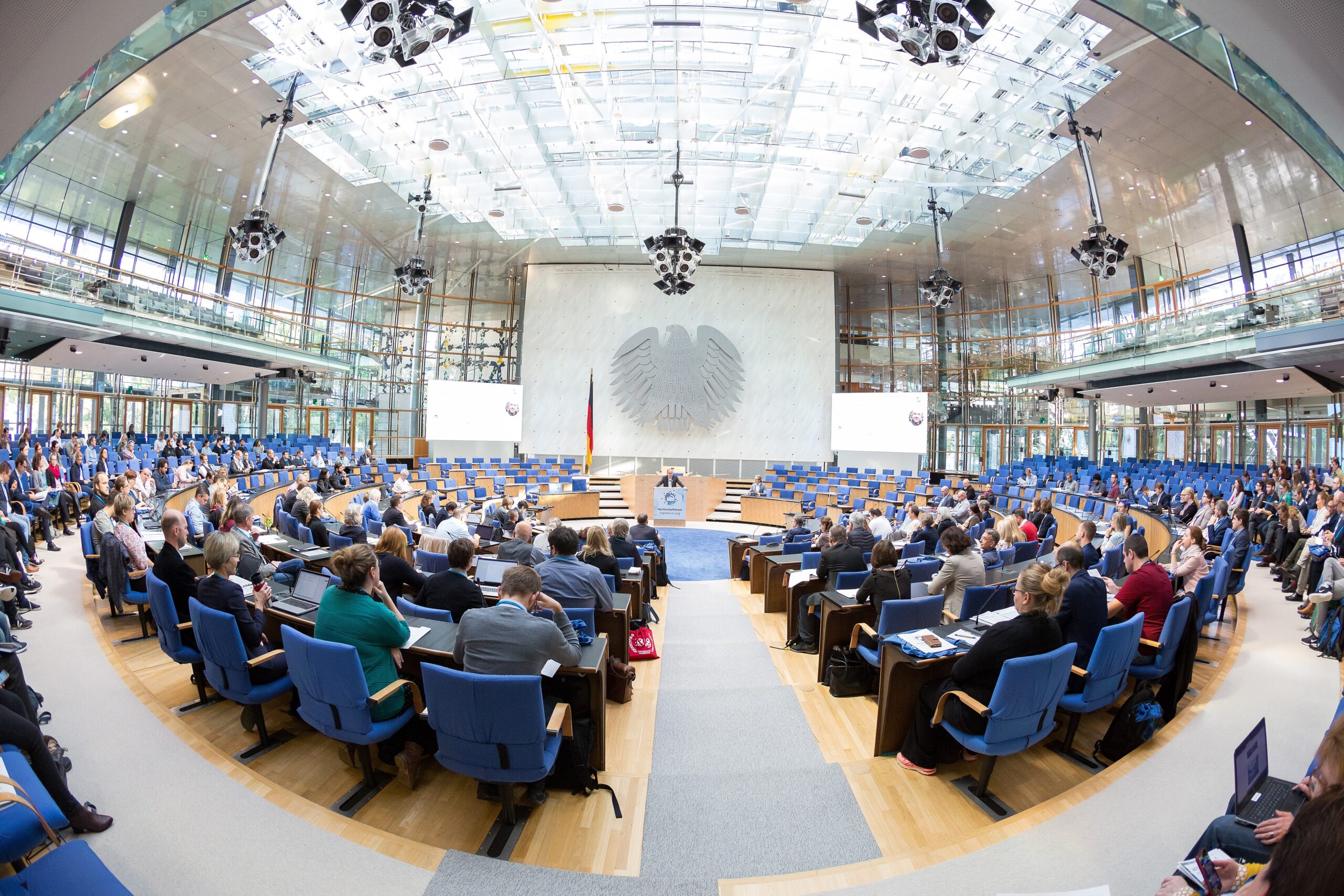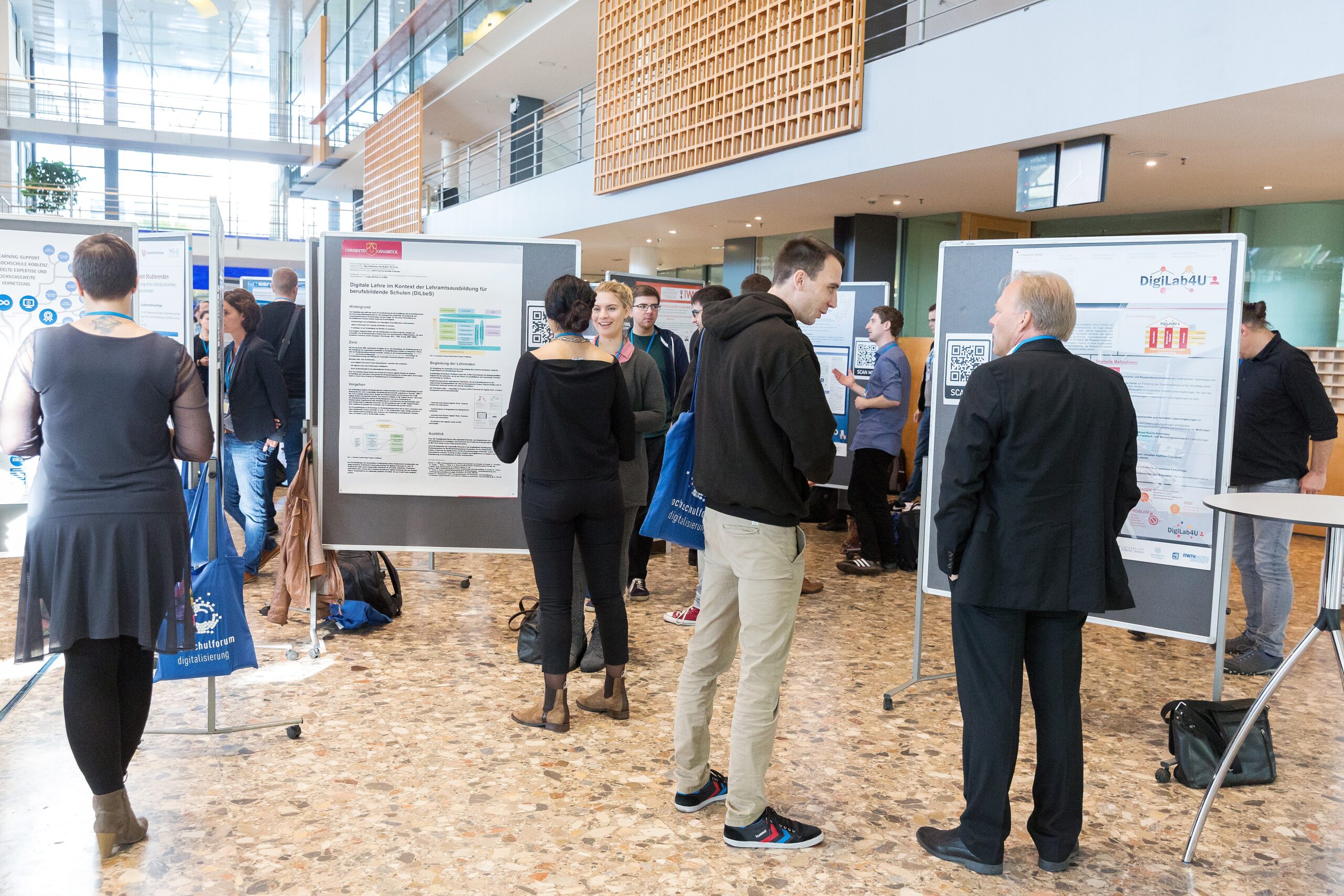HFDcon 2019: Safety first? Thinking data security and innovative teaching together
On October 21, 2019, for the third time, we have invited all those who are involved in the topic of digital teaching at various points, academically or practically, to the HFD network meeting in order to meet like-minded people at the HFDcon, to share experiences, and to (further) develop ideas together.
Getting started: Pre-Conference activities
For those who couldn’t wait, the program already started the day before HFDcon. The Bonn Greeters picked up all curious people on Sunday afternoon at the Münsterplatz to explore Bonn together. “Em Höttche”, since 1389 the central place for bönnsche specialties, everyone could freely prepare for the coming day according to the motto “traditional food – progressive university teaching”.
Straight into action: HFDcon 2019
From the community. For the community. With the community – following this principle of the network for university teaching, this year’s HFDcon once again offered a variety of formats in which everything to do with digital teaching found space. The conference program had been designed with great commitment from the network members themselves and showed the diversity of creative approaches, ranging from “Bots in University Teaching” to “VREngineering: Virtual Immersive Teaching and Learning of Future Skills in Civil Engineering Education”. The focus was always on individual exchange, which “early adopters” could begin in the airy foyer of the WCCB even before the program began. Around 500 participants filled the day with life, once again demonstrating their commitment to contemporary and engaging teaching.
The network’s chairman, Prof. Dr. Dr. h.c.. Joachim Metzner, emphasized in his welcoming speech how much fears about digitization at universities have been replaced by productive ideas – and how strongly the community has contributed to this. Ulrich Schüller, Head of Department 4 “Science System” at the Federal Ministry of Education and Research, was also impressed by the liveliness and dynamics of the exchange in his welcoming address. He referred to the historical dimension that the topic of digitization represents. The historical location fits in with this.
The conference day was led by network member Dr. habil. Malte Persike. The students were also involved, who are not only understood as the target of teaching at the HFD, but also as a formative part – their demands and wishes will flow into the further work of the HFD, promised Prof. Dr. Dr. h.c. Metzner on behalf of the HFD.

Image: Photography Schulzki

Image: Photography Schulzki
Insights
In the keynote, Alexa Boeckel, Markus Lamprecht, and Zaim Sari, representing the Zukunfts-AG #DigitaleChangemaker, presented the results of their nationwide survey on ideas and perceptions about the digitization of universities from the students’ perspective. Students would particularly like to see a better infrastructure, more recordings of basic lectures, networked platforms instead of split solutions, and digital administration of exams (registration and deregistration, viewing grades, exam viewing).
Hands-on
In 13 parallel workshops, the focus was on a wide variety of topics related to digitization.
‘Building Digital Ecosystems’: higher education teaching between digitally-enabled processes, student data portability and security.
Alexander Knoth, DAAD – German Academic Exchange Service
Saskia Weißenbach, DAAD – German Academic Exchange Service
Didactic Diversity for Innovative eLearning Offerings – The Applied Media Didactic Consulting Matrix for Lecturers of all Departments at Koblenz University of Applied Sciences.
Nico Raichle, Koblenz University of Applied Sciences
Gamification and serious games in university teaching with examples of use to try out.
Prof. Dr. Mark Vetter, Würzburg-Schweinfurt University of Applied Sciences
Dr. Daniel Tolks, Leuphana University Lüneburg, Ludwig Maximilian University Munich
Prof. Dr. Rolf Kreyer, University of Marburg
Internationalization and digitization
Prof. Dr. Ralph Sonntag, Dresden University of Applied Sciences
Juliane Baier, Dresden University of Applied Sciences
Thomas Heider, Dresden University of Applied Sciences
Interdisciplinary for sure! Data security – a digital core competence for students of all subjects
Matthias Bandtel, Mannheim University of Applied Sciences
Prof. Dr. Wiebke Werft, Mannheim University of Applied Sciences
Natalia Weißker, Mannheim University of Applied Sciences
MOOChub, the path to new digital standards in education.
Andreas Wittke, Lübeck University of Technology
Markus Ebner, Graz University of Technology
Legal issues of digitalization in university teaching
Jens O. Brelle, Multimedia Kontor Hamburg
Yulia Chalina, ELAN e.V.
Eva Gabriel-Jürgens, Multimedia Kontor Hamburg
Promoting Writing Competence in Studies through the Use of Digital Media – Potentials and Limits
Dr. Dagmar Knorr, Leuphana University Lüneburg
Copyright – What does it have to do with me? Workshop of the Federal Ministry of Education and Research<
Bettina Klingbeil, Federal Ministry of Education and Research
Dr. Anne-Kathrin Müller, Federal Ministry of Education and Research
Networking meeting of the projects from the research focus “Research on Digital Higher Education
Representatives of the project sponsor VDI/VDE-IT
Presentation of the work results of the ad hoc working group “Higher Education for the Digital Age in a European Context
Members of the AG
Presentation of the work results of the ad hoc working group “Learning Architectures”: From Zugzwang to future strategy: Designing learning architectures together”.
Inka Wertz, HIS Institute for Higher Education Development e.V.
Dr. Dorit Günther, Kaiserslautern University of Technology
VREngineering: Virtual immersive teaching and learning of future skills in civil engineering education.
Prof. Dr. Heribert Nacken, RWTH Aachen University, Department of Engineering Hydrology; Rectorate Representative for Blended Learning
Dr. habil. Malte Persike, RWTH Aachen University, CLS – Center for Teaching and Learning Services
Community Gallery Walk
The poster exhibition at the Gallery Walk presented research, teaching or support projects – also from the Digital Higher Education funding lines, for which a networking meeting was also held. The Gallery Walk was available for visitors* throughout the day in the foyer of the WCCB. Here, everyone could learn about the projects with an audio guide. Of course, there was also the opportunity to exchange ideas with the poster managers in person.

Community Gallery Walk (Photography Schulzki)
Loading ideas: Data security – (k)eine Frage der Lehre?
In the age of Big Data, masses of a wide variety of data, including sensitive data, are generated in all places – including universities. This raises a variety of questions about how this data should be handled, especially with regard to how it can be secured and protected, for example against manipulation, unauthorized access or simple data loss. How can learning analytics be used sensibly while at the same time protecting the privacy of students? What is the responsibility of higher education institutions and their staff, but also of students? Does data security as ‘digital competence’ belong to the subject-independent teaching content at universities? These and other questions were discussed by our panelists Leonie Ackermann (fzs), MDirig Peter Büttgen (BfDI), Prof. Dr. Monika Gross (HRK Vice President for Digitization), Prof. Dr.-Ing. Sebastian Schinzel (FH Münster) and Dr. Elke Steven (Digitale Gesellschaft e.V.).
Spot-on: Barcamp sessions
In 13 barcamp sessions, participants exchanged ideas on various topics. The spectrum ranged from “Learnbin Analytics” to “Digitization in Adult Education”.
Spread the word: Presentation and resolution of the final declaration “Introduce data-secure online tools across the board!
At the end, the participants adopted a declaration in which they called on the states, the federal government and the EU Commission to financially support the development and provision of tools for cross-university online collaboration. This could be done by promoting the further development of existing local solutions or by establishing a cloud infrastructure that can be used throughout Germany or Europe.
Science Slam: “My worst teaching experience!”
In addition to “good practices”, which were in focus throughout the day, “lessons learned” are at least as important for the further development of good and innovative teaching. With a little wink, we therefore invited to a Science Slam under the motto “My Worst Teaching Experience” at the end of the HFDcon in the Südstadt Studikneipe. Three slammers presented their worst teaching disasters in a self-deprecating and entertaining way and caused a lot of laughter. Afterwards, there was an opportunity to network in a relaxed atmosphere until the early hours of the morning.
